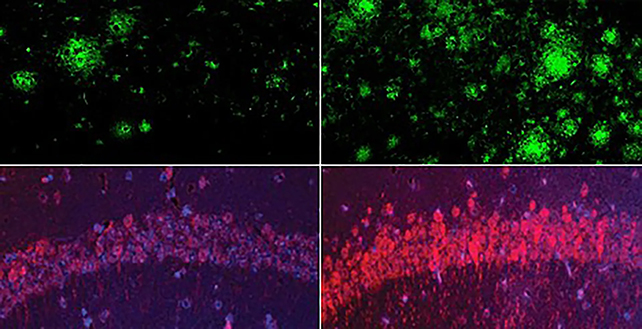We may have new hope in the battle against Alzheimer’s disease. Researchers have found that lithium levels in the brain are closely linked to the condition, and that lithium supplements can reverse Alzheimer’s-like memory loss in mice.
Led by a team from Harvard Medical School, the researchers wanted to investigate previous links that have been made between exposure to metals and dementia risk.
Through hundreds of donated brain tissue and blood samples taken from people with advanced Alzheimer’s, early-stage mild cognitive impairment (MCI), and no cognitive issues at all, the team ran tests for dozens of different metals.
Related: These 4 Distinct Patterns May Signal Alzheimer’s According to Science
Only one metal showed significant differences in abundance between these groups: lithium. Reduced levels of this metal were also noticeable at the earliest stages of memory loss in the tested samples.
“The idea that lithium deficiency could be a cause of Alzheimer’s disease is new and suggests a different therapeutic approach,” says geneticist and neurologist Bruce Yankner, from Harvard Medical School.
While lithium is widely used to treat bipolar disorder, this is the first time it’s been found to be naturally present in the brain.
“Lithium turns out to be like other nutrients we get from the environment, such as iron and vitamin C,” says Yankner. “It’s the first time anyone’s shown that lithium exists at a natural level that’s biologically meaningful without giving it as a drug.”

Further analysis revealed that the amyloid-beta protein clumps that accompany Alzheimer’s seemed to be binding to lithium in the brain, making less of it available to neurons and further accelerating the progression of the disease.
Next, the researchers ran tests on mice, finding that depriving their brains of lithium dramatically increased the clumps of amyloid-beta in their brains. The amount of another Alzheimer’s-related protein called tau also increased.
Even better, the researchers found that a certain type of lithium, lithium orotate, could evade capture by amyloid-beta proteins. When small doses of it were given to mice with Alzheimer’s-like symptoms, the animals’ memory function was restored, and other signs of cognitive decline were effectively reversed.
There are still plenty of questions left unanswered, as is often the case with Alzheimer’s, which is an incredibly complex disease. At the moment, it’s not clear how levels of lithium begin to drop, for example, and how that then leads to signs of dementia.
Further studies should help to clarify that, and clinical trials are the next significant step. Eventually, Alzheimer’s could be diagnosed earlier by measuring patients’ lithium levels, while lithium supplements could be a useful preventative or treatment.
With the number of people with dementia on the rise, there’s an urgent need to find ways of protecting the brain against the devastating consequences of the condition.
“You have to be careful about extrapolating from mouse models, and you never know until you try it in a controlled human clinical trial, but so far the results are very encouraging,” says Yankner.
The research has been published in Nature.
Source link


